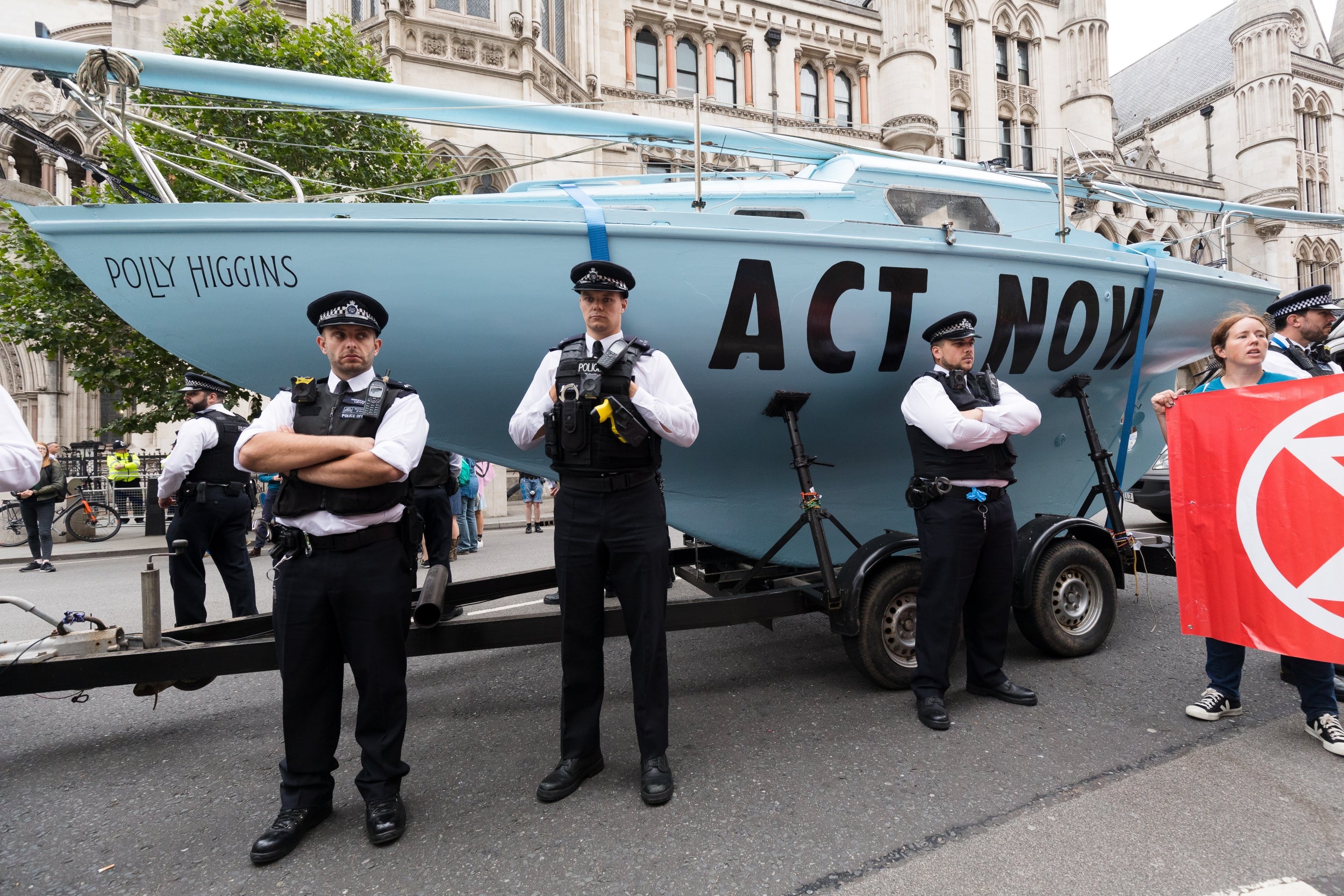Ten things the UK must do to reach net zero by 2050
Analysis: Phoebe Weston examines what needs to be done to hit the government’s emissions target


The UK’s net zero 2050 pledge is meaningless without policies in place to deliver it.
The latest report by the Commons Science and Technology Committee has found the government can no longer promote change by essentially changing nothing.
Worse still – policies on fracking, reducing subsidies on renewable energy and opposing wind farms suggest the government is still moving in the wrong direction.
According to Dr Robert Gross from Imperial College London, there has been a “perfect mismatch between aspiration and action”.
“Policies to promote the use of low carbon and efficient products have been removed even as the government has ramped up its aspirations to achieve net zero and to capture the benefits for UK businesses and consumers,” he said.
Here are 10 key hurdles outlined in the report and how the government can address them:
1. New ways to heat our homes
The construction industry is not keeping up with the UK’s low-energy standards and houses are still being built that are unlikely to reach the necessary energy targets.
A massive trial of low-energy building processes needs to be set up so experts can work out the best way to incorporate heat pumps and hydrogen gas heating systems into houses.
Once these trials are up and running, the government can make a long-term decision on what will be the most effective and environmentally friendly way to heat – and cool – houses of the future.
2. Making homes more energy efficient
Most of the houses we will live in in 2050 are already built.
Twenty-seven million houses will need to be retrofitted to be made more environmentally friendly by 2050. This means modifying 20,000 properties every week until that date. However, at current rates just 20,000 properties are being retrofitted each year.
The problem is making changes does not make sense for the typical householders as the financial benefits are only seen decades later.
In the report, MPs say the government should change stamp duty so it varies according to how energy efficient a house is, as well as how much it costs. Homebuyers should be able to make their homes more energy efficient within a certain period after buying the property and claim some of the stamp duty money back.
3. Reduce emissions from cars
Electric cars are set to be cheaper than petrol and diesel cars in less than six years. The government must support these emerging technologies.
Currently the government is banning the sale of petrol and diesel cars by 2040. The report says this should be brought forward to 2035 at the latest and ensure the ban covers hybrid cars too. The government should also work with public services such as schools and hospitals to increase the number of electric charging points.
At the same time MPs said fewer people need to own cars. This is because the manufacture of cars – even those that are ultra-low emissions – create substantial emissions.
Personal vehicle ownership is not compatible with significant decarbonisation. It is not enough to replace existing vehicles with lower-emissions ones – the whole transport sector needs to be smaller.
4. More support for onshore and solar power
Changes to business rates in 2017 have seen rates on solar panels increase between three and eight-fold. This means onshore wind and large-scale solar power projects have missed out on subsidies available to other renewable technologies.
Since 2015, planning permission for onshore wind farms has also been more difficult to get.
The report said there must be strong policy support for onshore wind power and solar power projects so that people who decide to invest in them will save money in the long term.
5. Smart export guarantee
Households and businesses that install solar panels will be paid for any excess electricity they produce under the government’s “smart export guarantee”.
The government must review this guarantee – the planned successor to the feed-in tariff scheme – by the end of 2020.
MPs say the government should be ready to introduce a minimum price floor if takeup is not happening fast enough.
6. Nuclear power needs to be sustained without growing
Government must be looking for new nuclear power generation so it can sustain – but not grow – the UK’s nuclear power industry.
Professor Barry Marsden from the University of Manchester said: “Support for small modular nuclear reactors, at last, a sensible proposal from both the nuclear industry and government to develop an achievable reliable, safe, clean, affordable non-intermittent power supply.
“This could be a UK led achievable goal that also has international sales potential. It should have been strongly pursued years ago, particularly with the UK expertise in nuclear graphite technology and high temperature systems.”
7. We need to suck up greenhouse gases
The UK needs to store more than 10 million tonnes of carbon dioxide each year by 2030 and 180 million tonnes per year by 2050. Greenhouse gas removal technology will be an essential part of delivering net zero by 2050.
The government needs to create a market where companies looking into greenhouse gas emissions removal on a vast scale can make profit. So far there have not been commercial drivers for atmospheric carbon dioxide removal.
“This is a market failure in the face of physical realities. The development and subsequent deployment of appropriate technologies will take 10-15 years,” says Professor Richard Templer from the Grantham Institute for Climate Change and the Environment.
“These technologies need to address the challenge environmentally, economically and socially. We do not have time to waste. Government intervention, at scale is needed, now.”
The UK will need to plant 1.5 billion trees by 2050. The Committee on Climate Change (CCC) recommended that 30,000 hectares be planted every year but if other carbon-reducing targets are not met, it said this will have to go up to 50,000.
Last year, the UK planted just 13,400 hectares of woodland, the majority of which was in Scotland. This will need to rapidly increase.
8. It needs to show clear action on carbon capture, usage and storage (CCUS)
Carbon capture usage and storage (CCUS) allows CO2 from waste gases to be “locked up” or used in industrial processes. No commercial-scale plant has yet been constructed in the UK.
The government has invested £300m of funding to CCUS projects.
The report says the government needs to optimise the chance of CCUS working by creating projects and testing them at scale. The knowledge gained from publicly funded work must be publicly accessible.
One major concern with CCUS protects is that it could make people think we don’t need to drastically reduce emissions. The report makes it clear that this technology is limited in scope and CCUS is no substitute for urgent action to reduce emissions.
Professor Nilay Shah from the Imperial College London said: “We shall have to pursue a twin track of deep reductions in emissions together with the deployment of greenhouse gas removal systems.

“Both of these require innovative business models and policies, and will be needed globally, indicating an opportunity for the UK to be at the forefront of these developments.”
9. Clean growth regulation
Ofgem is the energy regulator in England, Wales and Scotland.
MPS say the government should amend Ofgem’s principal objective so it makes sure regulations align with emissions reduction targets set out in the Climate Change Act 2008.
10. Support for local authorities
The government must support local authorities and members of the public in contributing to the net zero target, MPs said.
This must include providing access to long-term finance and developing emission reductions plans. The government must also publish an accessible guide on what measures households can take to decarbonise.
Join our commenting forum
Join thought-provoking conversations, follow other Independent readers and see their replies
Comments
Bookmark popover
Removed from bookmarks